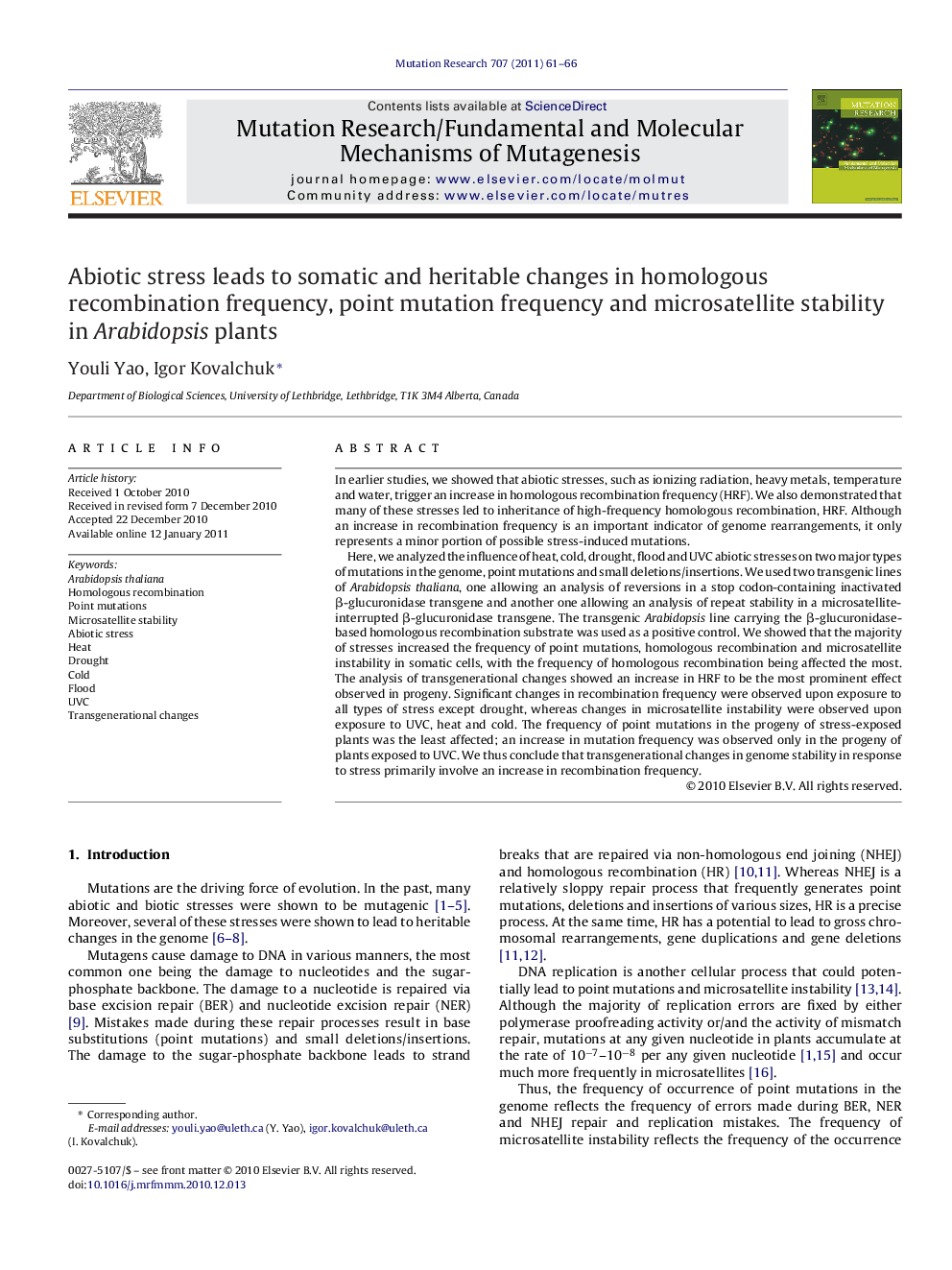| Article ID | Journal | Published Year | Pages | File Type |
|---|---|---|---|---|
| 2146675 | Mutation Research/Fundamental and Molecular Mechanisms of Mutagenesis | 2011 | 6 Pages |
Abstract
Here, we analyzed the influence of heat, cold, drought, flood and UVC abiotic stresses on two major types of mutations in the genome, point mutations and small deletions/insertions. We used two transgenic lines of Arabidopsis thaliana, one allowing an analysis of reversions in a stop codon-containing inactivated β-glucuronidase transgene and another one allowing an analysis of repeat stability in a microsatellite-interrupted β-glucuronidase transgene. The transgenic Arabidopsis line carrying the β-glucuronidase-based homologous recombination substrate was used as a positive control. We showed that the majority of stresses increased the frequency of point mutations, homologous recombination and microsatellite instability in somatic cells, with the frequency of homologous recombination being affected the most. The analysis of transgenerational changes showed an increase in HRF to be the most prominent effect observed in progeny. Significant changes in recombination frequency were observed upon exposure to all types of stress except drought, whereas changes in microsatellite instability were observed upon exposure to UVC, heat and cold. The frequency of point mutations in the progeny of stress-exposed plants was the least affected; an increase in mutation frequency was observed only in the progeny of plants exposed to UVC. We thus conclude that transgenerational changes in genome stability in response to stress primarily involve an increase in recombination frequency.
Keywords
Related Topics
Life Sciences
Biochemistry, Genetics and Molecular Biology
Cancer Research
Authors
Youli Yao, Igor Kovalchuk,
